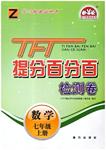题目内容
There is no doubt about it. The best way to learn new words is to do it unconsciously. I don’t mean while you’re unconscious. I mean while you are unconscious of the fact that it is sinking in.
That is how I learnt the 30,000 words in my vocabulary by living in an English-speaking world, mother tongue. I just pick them up. But some of them may be misunderstood. Now, to misunderstand does not mean not to understand. To misunderstand is to understand but incorrectly.
The 5 % mislearnt of all the words we “know” will be the least frequently used words, as the more frequently used words are less likely to be mislearnt. Some of the misunderstandings may live with all our lives, without knowing that we got them wrong.
Many English teachers think that this natural method of learning words in one’s own mother tongue can be used for a second language learning. They teach their students how to play the Guessing Game. “There is no time to look up in your dictionaries all the new words you come across,” they will say. “You have to practise guessing what the word means from the context.”
This method of guessing in a second language learning does not work. It may succeed in many cases, but results in hundreds or thousands of wrongly-guessed meanings of words.
And what’s more, there are more separate meanings than there are words themselves. Our learners’ dictionaries usually have many meanings. A good dictionary is what makes self-learning possible.
Don’t guess! Look it up!
59. It is certain that the best way to learn new words is _____________.
A. to learn them by oneself
B. to learn by living in an English-speaking world and using them frequently
C. to guess them from the context
D. to get more separate meanings of each word
60. The underlined word “them” in Paragraph 2 refers to _________.
A. the 30,000 words B. English teachers
C. misunderstood words D. frequently used words
61. Which of the following is most likely NOT true?
A. Some of the words the writer knows must have been misunderstood.
B. Most of the 30,000 words the writer learned are frequently used ones.
C. How many words the writer got wrong are not known.
D. All the words the writer knows were learned by reading them.
62. It can be inferred that _________.
A. when somebody is conscious, he or she usually can’t learn new words by heart
B. we must use the words as often as possible in order to master them
C. it’s the best way to learn new words that one should only guess their meanings from the context
D. only dictionaries can help us learn language well
![]() 59.D。本文作者不主张猜词义,而强调查辞典的重要性,并应记住尽量多的词义。作者在倒数第二段作了说明:辞典能给出很多不同的词义。联系起来可得出此答案。也可用排除法。
59.D。本文作者不主张猜词义,而强调查辞典的重要性,并应记住尽量多的词义。作者在倒数第二段作了说明:辞典能给出很多不同的词义。联系起来可得出此答案。也可用排除法。
![]() 60.A。根据上文所说I learnt the 30,000 words...可知。
60.A。根据上文所说I learnt the 30,000 words...可知。
![]() 61.D。从第1段中的sinking in(潜移默化)和第2段中的pick them up(不知不觉学到),可知作者掌握的词汇中一部分是在生活中无意识学到的。
61.D。从第1段中的sinking in(潜移默化)和第2段中的pick them up(不知不觉学到),可知作者掌握的词汇中一部分是在生活中无意识学到的。
![]() 62.B。第3段说作者对所学词汇中的5%理解错误,原因是用得最少。而用得多的则误解的可能性小。
62.B。第3段说作者对所学词汇中的5%理解错误,原因是用得最少。而用得多的则误解的可能性小。

 提分百分百检测卷系列答案
提分百分百检测卷系列答案